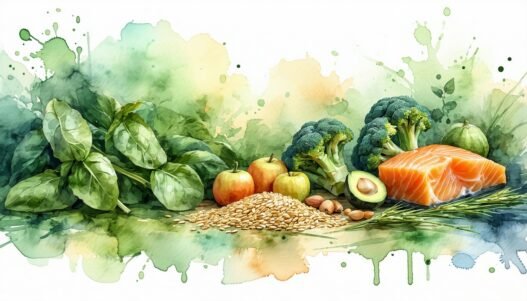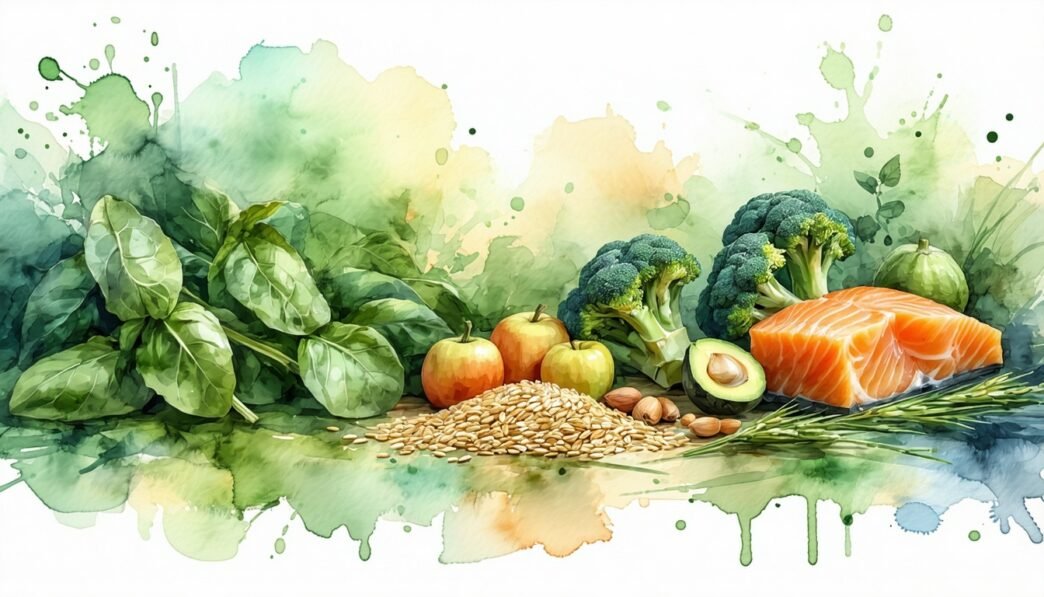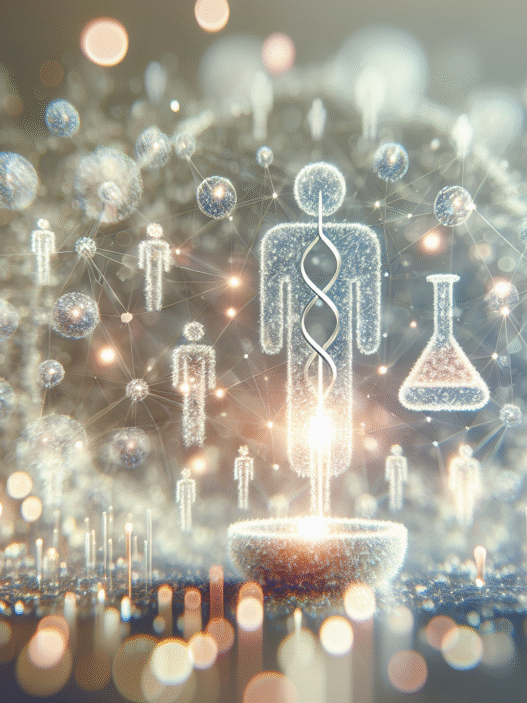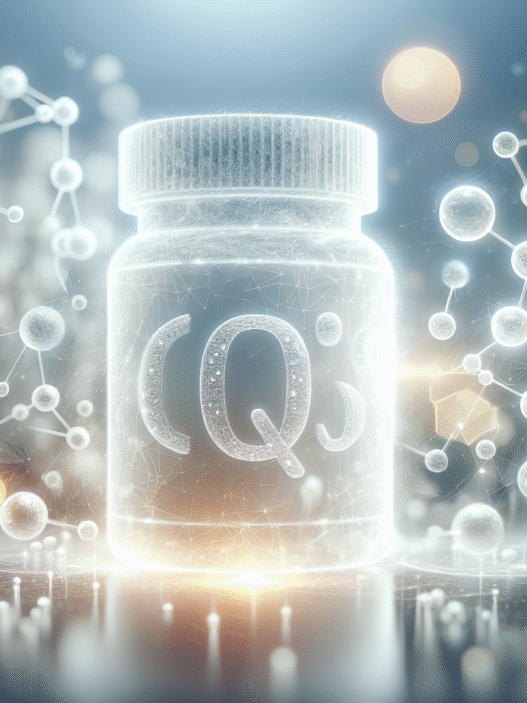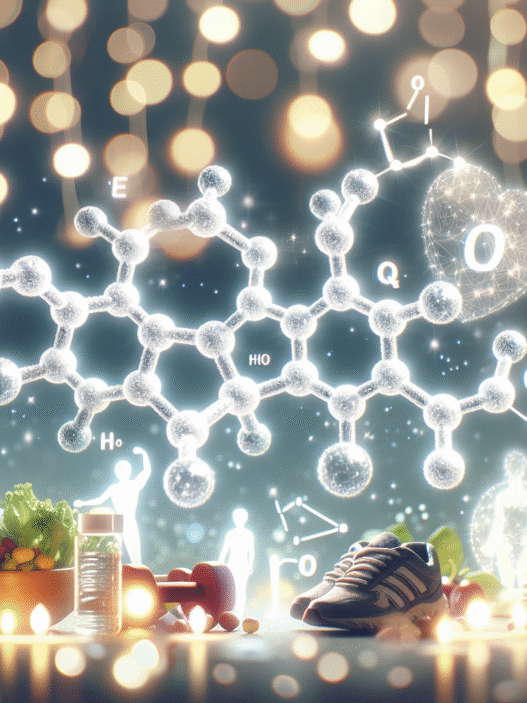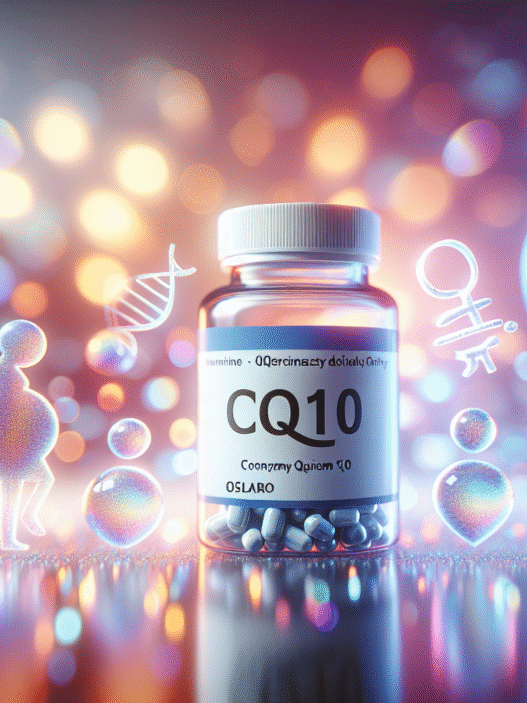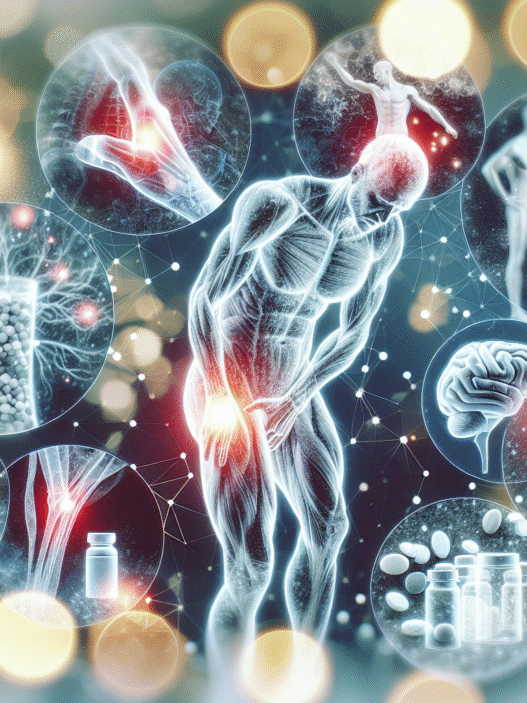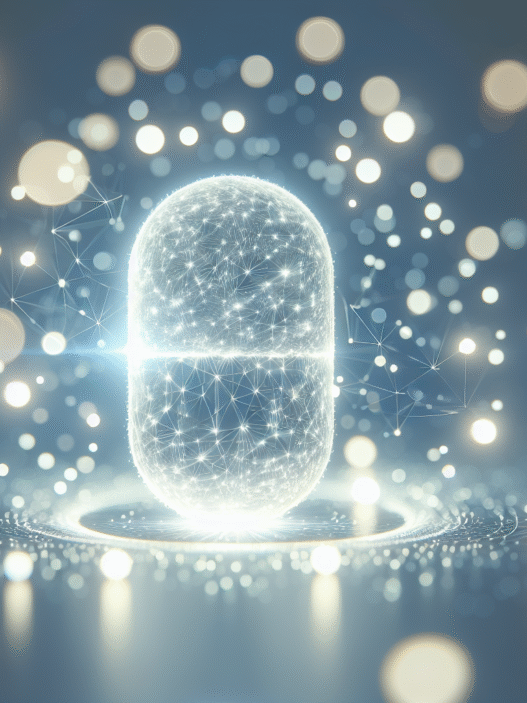The Importance of CoQ10
Role of CoQ10 in Aging
Coenzyme Q10, commonly known as CoQ10, plays a significant role in the aging process. A naturally occurring compound, CoQ10 is produced by the body and stored in the mitochondria of our cells. It functions as an antioxidant, combating oxidative damage caused by free radicals, and also aids in cellular energy production.
As we age, the body’s production of CoQ10 diminishes. This reduction can lead to various health issues, particularly those associated with aging, such as decreased heart and skeletal muscle function. The decrease in CoQ10 levels can directly impact energy production and the body’s ability to repair and maintain cells, which are crucial for staying youthful and vital.
Health Conditions Linked to CoQ10 Levels
Several health conditions are linked to fluctuating CoQ10 levels. These conditions are more prevalent as CoQ10 production decreases with age:
| Health Condition | Connection to CoQ10 |
|---|---|
| Cardiovascular Disease | Reduced CoQ10 negatively impacts heart health, leading to increased risk of heart conditions. |
| Muscle Weakness | Lower levels of CoQ10 can affect skeletal muscle function, causing fatigue and weakness. |
| Neurodegenerative Diseases | Conditions like Parkinson’s and Alzheimer’s may be exacerbated by decreased CoQ10, as it plays a protective role in brain cells. |
| Hypertension | CoQ10 helps maintain blood pressure levels. Low levels are associated with high blood pressure. |
To manage these conditions, individuals can focus on natural sources of CoQ10 and consider supplementation, especially as they age. For more details, visit our section on coq10 benefits for skin, heart health benefits, and coq10 antioxidant benefits. Additionally, for those concerned about maintaining youthful skin and vitality, the section on coq10 for youthful skin can be particularly insightful.
Understanding the importance of CoQ10 and its impact on various health aspects highlights the need for adequate intake through either diet or supplements. This is vital for adults aged 35–65 who are concerned with aging and maintaining their vitality. For more information on maintaining proper CoQ10 levels, explore our articles on natural sources of CoQ10 and best coq10 supplements.
Natural Sources of CoQ10
Understanding the natural sources of CoQ10 is vital for maintaining youth and vitality. Let’s explore both rich food sources and plant-based options for this essential antioxidant.
Rich Food Sources of CoQ10
CoQ10 (Coenzyme Q10) is an antioxidant produced naturally by the human body. It’s particularly concentrated in the heart, liver, kidneys, pancreas, and skeletal muscle, where it plays a crucial role in neutralizing free radicals and maintaining healthy tissue and organ function. Here’s a breakdown of some of the richest dietary sources of CoQ10:
| Food Source | CoQ10 Content (mg per 100g) |
|---|---|
| Beef Heart | 11.3 |
| Pork Heart | 12.7 |
| Chicken Liver | 11.6 |
| Beef | 3.1 |
| Sardines | 6.4 |
| Mackerel | 5.2 |
| Soybean Oil | 6.3 |
| Peanuts | 2.6 |
These foods are especially beneficial in protecting the heart and skeletal muscles and can support heart health, boost energy, and speed recovery from exercise (PeaceHealth). For detailed information on how CoQ10 benefits the heart, visit our article on coq10 and heart health.
Plant-Based Options for CoQ10
Although CoQ10 is more abundant in animal-derived foods, there are still several plant-based options available. These options are particularly beneficial for those following a vegan or vegetarian diet. Here are some plant-based sources rich in CoQ10:
| Plant-Based Source | CoQ10 Content (mg per 100g) |
|---|---|
| Spinach | 3.8 |
| Broccoli | 0.5 |
| Cauliflower | 0.4 |
| Peanuts | 2.6 |
| Lentils | 0.3 |
| Sesame Seeds | 1.7 |
Leafy greens such as spinach and broccoli, legumes like lentils, and nuts and seeds like peanuts and sesame seeds are notable for their CoQ10 content (Plant Nutrition Wellness). Given that CoQ10 is lipid-soluble, the best plant-based sources are those rich in fats and oils. For more insights on age-related CoQ10 changes, check out coq10 and aging process.
To meet a daily intake of 100mg of CoQ10 through diet alone could be challenging, as it would require consuming the equivalent of 60 avocados every day. This is why incorporating best coq10 supplements might be more practical for ensuring adequate intake.
Explore more about the antioxidant benefits of CoQ10, its role in skin health, and its impact on skin aging through our detailed articles.
Benefits of CoQ10
Heart Health Benefits
CoQ10 plays a pivotal role in maintaining heart health. It is naturally present in high levels in organ meats, such as heart and liver, as well as in beef and fish like sardines and mackerel. CoQ10 helps protect the heart and skeletal muscles. Supplementation of CoQ10 alongside standard therapy is shown to be beneficial for individuals with moderate-to-severe heart failure, reducing symptoms and major adverse cardiovascular events.
| Condition | Benefit of CoQ10 |
|---|---|
| Heart Failure | Symptom reduction, improved functional capacity |
| Cardiovascular Conditions | Reduced adverse cardiovascular events, improved endothelial function |
Explore more on CoQ10 and heart health.
Antioxidant Properties of CoQ10
CoQ10 is a potent antioxidant that helps protect cells from oxidative stress. The antioxidant properties of CoQ10 play a critical role in mitigating the effects of free radicals, thereby preventing cell damage and promoting overall health. This antioxidant capability is essential in reducing the risk of chronic diseases and supporting cellular health (NCBI Bookshelf).
By neutralizing free radicals, CoQ10 helps maintain skin health and elasticity, which is crucial for those concerned about skin aging and wrinkles.
Learn more about the CoQ10 antioxidant benefits.
Additional Health Benefits
Beyond its cardiovascular and antioxidant functions, CoQ10 offers a range of additional health benefits. It can help boost energy levels, speed up recovery from exercise, and alleviate symptoms of certain conditions such as migraine headaches linked to mitochondrial dysfunction. CoQ10 is also beneficial for patients with primary CoQ10 deficiency, mitochondrial disorders, and fibromyalgia.
| Condition | Benefit of CoQ10 |
|---|---|
| Exercise Recovery | Boosts energy levels, speeds recovery |
| Migraine | Reduces frequency and severity of headaches |
| Other Health Issues | Beneficial for mitochondrial disorders, fibromyalgia |
For further information on these and other benefits, check out our detailed articles on coq10 anti-aging properties and coq10 and mitochondrial function.
By incorporating natural sources of CoQ10 into your diet or considering supplementation, you can enjoy these myriad benefits and support your overall health and vitality. For more insights, visit our article on the best coq10 supplements.
CoQ10 Supplements
When considering CoQ10 supplementation, it’s essential to be informed about dosage recommendations and the differences between ubiquinol and ubiquinone.
Dosage Recommendations
CoQ10 supplements are typically available in doses ranging from 90 to 200 mg per day. In some cases, doses as high as 500 mg per day may be required. It is suggested that CoQ10 supplements be taken with a meal containing some fat to improve bioavailability.
| Dosage (mg/day) | Use Case |
|---|---|
| 90 – 200 | General supplementation |
| Up to 500 | Specific medical conditions such as CoQ10 deficiency |
For more information on dosage for anti-aging, visit our detailed article on CoQ10 dosage for anti-aging.
Choosing between Ubiquinol and Ubiquinone
CoQ10 supplements come in two forms: ubiquinol and ubiquinone. Each form has its own benefits and considerations.
Ubiquinone
Ubiquinone is the oxidized form of CoQ10 and is commonly found in standard CoQ10 supplements. While effective, it requires conversion by the body into its reduced form, ubiquinol, for maximum absorption. This conversion process can become less efficient with age (Ubiquinol.org), making ubiquinone less favorable for older adults.
Ubiquinol
Ubiquinol is the reduced form of CoQ10 and is more readily absorbed by the body. Studies indicate that ubiquinol offers better bioavailability compared to ubiquinone (NCBI Bookshelf). For individuals over the age of 40, ubiquinol is often recommended due to the body’s diminished ability to convert ubiquinone.
| Form | Characteristics | Recommended For |
|---|---|---|
| Ubiquinone | Oxidized CoQ10, requires conversion | Younger adults, general use |
| Ubiquinol | Reduced CoQ10, higher bioavailability | Older adults, those with reduced conversion capability |
Selecting between ubiquinol and ubiquinone depends on individual health needs and age. For further insights, read about the best CoQ10 supplements.
Taking CoQ10 supplements can help support heart health benefits, skin health benefits, and aid in mitochondrial function.
CoQ10 Absorption and Function
The body’s ability to absorb and utilize CoQ10 is a vital component of its function, particularly in the context of aging and vitality. Here, we will delve into the cellular localization of CoQ10 and the conversion process of CoQ10 to its active form, Ubiquinol.
Cellular Localization of CoQ10
CoQ10, also known as coenzyme Q10, is found throughout the body at the cellular level. It is especially concentrated in the mitochondria, the energy-producing structures within cells. These mitochondria are present in high numbers in organs that require significant amounts of energy, such as the heart, liver, lungs, and spleen.
| Organ | CoQ10 Concentration |
|---|---|
| Heart | High |
| Liver | High |
| Lungs | Moderate |
| Spleen | Moderate |
The presence of CoQ10 in mitochondria is critical as it plays a key role in the mitochondrial function, which is essential for maintaining cellular energy. CoQ10 is deeply involved in the Electron Transport Chain, where it facilitates the creation of ATP (Adenosine Triphosphate), the primary energy currency of the cell.
Conversion of CoQ10 to Ubiquinol
For CoQ10 to perform its function efficiently, it must be converted to its active form, Ubiquinol. This conversion is crucial for energy production and antioxidant activities. In the Electron Transport Chain, CoQ10 travels through a pathway where it accepts electrons, thus converting into Ubiquinol.
This conversion not only supports ATP production but also enhances the antioxidant properties of CoQ10. Ubiquinol acts as a potent antioxidant, protecting cells from oxidative damage and contributing to overall cellular health.
Understanding these processes is paramount for those interested in their anti-aging properties and skin health benefits. For more insights on the benefits and appropriate dosages of CoQ10 supplements, explore our resources on best coq10 supplements and coq10 dosage for anti-aging.
Key Points:
- CoQ10 is primarily localized in the mitochondria of energy-demanding organs.
- Conversion to Ubiquinol is essential for ATP production and antioxidant defense.
For those who want to integrate CoQ10 into their anti-aging routine, learning about its sources and roles in the body can provide the knowledge needed to make informed choices about supplementation and its multiple health benefits.
CoQ10 and Aging
Understanding the relationship between CoQ10 and the aging process is crucial for adults looking to maintain energy and vitality as they age.
Decrease in CoQ10 with Age
CoQ10, or coenzyme Q10, is a compound found in every cell of the body, crucial for energy production and antioxidant protection. Unfortunately, as individuals age, their natural levels of CoQ10 decline significantly. Starting around the age of 40, the efficiency of converting conventional CoQ10 into Ubiquinol decreases. This decline means that older adults need to find ways to replenish CoQ10 levels to maintain their health.
To consume the recommended 100mg of CoQ10 daily, an adult would need to eat the equivalent of 60 avocados, making dietary supplementation essential for maintaining adequate CoQ10 levels.
Ubiquinol for Older Adults
For those aged 40 and above, supplementing with Ubiquinol, the more advanced form of CoQ10, is often recommended. Ubiquinol is the reduced, active form of CoQ10 and is more readily absorbed by the body, making it particularly beneficial for older adults whose bodies are less efficient at converting CoQ10 into Ubiquinol.
Many studies have demonstrated that supplementation with CoQ10, including its Ubiquinol form, shows promise in reducing symptoms and major adverse cardiovascular events in patients with heart conditions (NCBI Bookshelf). This can be crucial as maintaining heart health is a significant concern for aging adults.
| Factor | Conventional CoQ10 | Ubiquinol |
|---|---|---|
| Absorption Efficiency | Lower in older adults | Higher in older adults |
| Recommended Daily Intake | 100mg from diet or supplements | Best taken as a direct supplement |
For those concerned about skin health and anti-aging, check out our article on coq10 benefits for skin and coq10 anti-aging properties.
Incorporating CoQ10 and Ubiquinol into your health regimen might be a vital step in maintaining energy, vitality, and overall well-being as you age. For more information on recommended supplements, visit our guide on best coq10 supplements.










